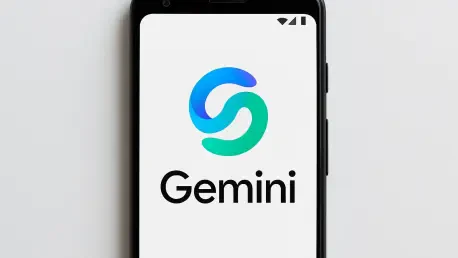In today’s rapidly evolving tech ecosystem, AI is no longer just a concept of the future; it’s becoming an integral part of our daily lives. Laurent Giraid, a notable expert in AI and machine learning, delves into the transition from complex systems to practical uses of AI on Android devices. His insights shed light on how features like Gemini’s memory capability are subtly reshaping the way we interact with technology.
What is Gemini, and how has Google presented it recently?
Gemini is Google’s latest generative AI engine, introduced with great fanfare during their recent events. The focus has been on its potential to revolutionize everyday tasks, integrating seamlessly into various Google services to enhance user experiences.
Can you describe the general perception of generative AI engines like Gemini, particularly regarding their capabilities and reliability?
While hopes are high, the reality is that these engines often fall short of their promised potential. Many advanced features described in marketing pitches are not as reliable or consistent in practice, leading to skepticism about their real-world applicability.
What are some of the realistic and basic capabilities of Gemini that are actually useful?
One of the standout features of Gemini is its ability to function as an on-demand memo machine. This practical application offers users an effortless way to store and retrieve information quickly, making it a highly convenient tool for everyday use.
You mentioned stumbling onto a useful Gemini feature accidentally. What is this feature, and how did you discover it?
I discovered Gemini’s memo functionality purely by accident while experimenting with unrelated tasks. This feature simplifies how users can store and later retrieve essential information effortlessly.
Can you explain how Gemini’s on-demand memo machine functionality works?
It’s remarkably straightforward—users can either speak or type a command for Gemini to store specific information. Later, when needed, they can call on Gemini to retrieve that exact information with ease.
How do you initiate a command for Gemini to remember information on an Android device?
You can summon Gemini using various methods—such as voice activation with “Hey Google,” pressing the power button, or using a shortcut. Then, simply tell it what you want to remember.
What kind of information can be stored in Gemini’s memory? Could you give some examples?
The range of information is diverse, including anything from security codes and personal preferences to trivial details like someone’s name. What’s important is that the information is easily retrievable when needed.
How do you retrieve the stored information from Gemini later on?
Retrieving information is as seamless as storing it. You activate Gemini and ask it a question based on the stored data, and it will provide a swift answer.
Can you use Gemini’s memory feature across different devices? If so, how does it work?
Absolutely, the feature is versatile. As long as you’re signed into the same Google account, you can access stored information on any device—be it a phone, tablet, or computer. The process remains consistent across platforms.
Is there a way to view or edit the list of everything you’ve asked Gemini to remember?
Yes, users can view and edit the entire list by logging into a dedicated page on any browser where they’re signed in. This transparency ensures users can manage their stored data efficiently.
How does this feature integrate into a user’s daily workflow?
This feature quickly integrates into daily routines by offering an easy way to keep track of details that might otherwise be forgotten. It’s these small efficiencies that can have a significant impact on productivity.
How is this memo-making feature positioned within the broader capabilities of Gemini?
Within Gemini’s feature set, this simple memo-making function stands out for its practicality and ease of use, something that doesn’t require the same level of complexity as other AI functionalities yet adds real value.
In your opinion, why might simple features like this be more practically useful compared to complex AI functions?
Often, the simplest solutions address specific, real-world needs efficiently. Unlike complex algorithms that require significant resources and understanding, features like these make technology accessible and directly beneficial, focusing on usability over sophistication.
Do you have any advice for our readers?
Embrace these simpler features in your workflow to improve efficiency and stay organized. While complex AI developments are fascinating, sometimes it’s the straightforward tools that transform everyday challenges into manageable tasks.









